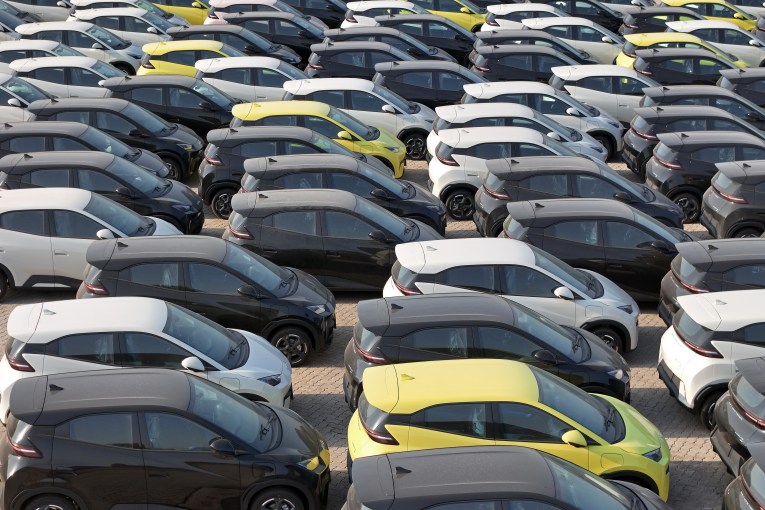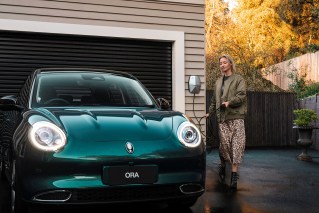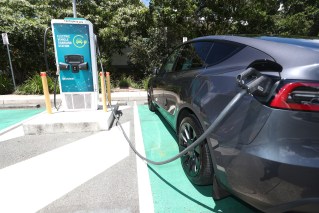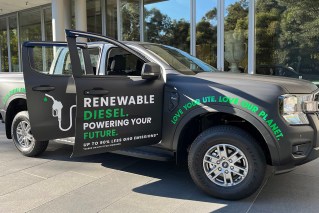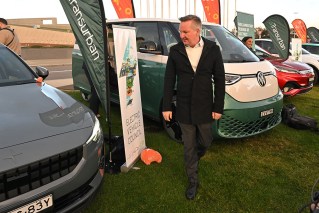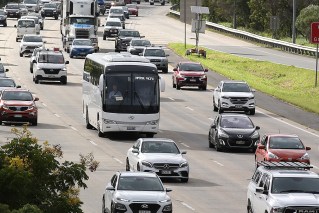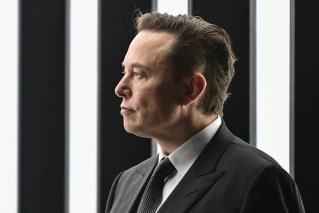‘Australia lags behind’: PM rated a dismal failure by electric vehicle advocates
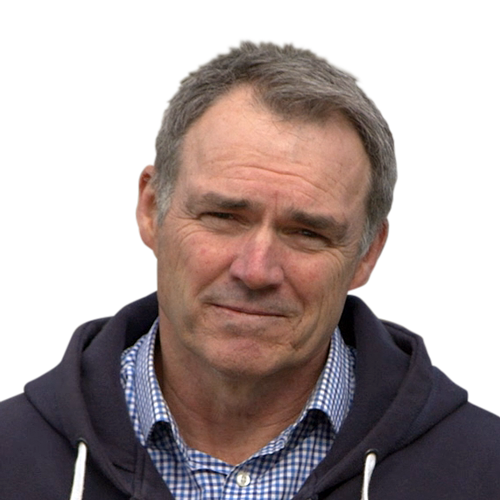
Fair dinkum, if one of your kids brought home a report card stuffed with as many Fs as the Electric Vehicle Council (EVC) has handed out to Australian governments they’d be grounded for months.
The EVC has judged the federal and state governments on the progress they’re making when it comes to EV policy and it doesn’t make for good reading.
Prime Minister Scott Morrison and his federal government, which has plenty of fossil fuel fans, scores a dismal F for its efforts – or rather, its lack of them.

Prime Minister Scott Morrison is a big fan of fossil fuels, and it shows. Photo: AAP
Joining Morrison & Co and wearing dunce caps are Western Australia and the Northern Territory, which each can only muster an F.
At the other end of the scale the Australian Capital Territory gets a B, and New South Wales and Queensland score C ratings.
Victoria, South Australia and Tasmania are awarded Ds.
The grades were handed out by the EVC based on how well our governments have gone introducing policy designed to encourage the popularity of EVs.
The policy settings used as criteria were:
- Setting an electric vehicle sales or fleet target
- Investing in public charging networks
- Developing and implementing a national electric vehicle strategy
- Providing electric vehicle purchase incentives and subsidising home charging installations
- Providing tax incentives for electric vehicle owners
- Public awareness initiatives
- Setting electric vehicle targets for government fleets
- Transitioning to electric bus fleets
- Mandating electric vehicle readiness requirements for new buildings
- Developing electric vehicle industry development strategies and incentives
Under the criteria the ACT maxed out on the government fleet target at 100 per cent. No other state or territory managed a 100 per cent rating under any criteria.
Queensland was awarded 75 per cent for investment in public EV charging networks, as was Tasmania. The ACT was rated at 75 per cent on EV tax incentives and its electric bus transition plan.
There were no other scores above 50 per cent and the federal government only scored a maximum of 25 per cent in three of the 10 categories.
Australia still lags behind the developed world in implementing policies that support the uptake of electric vehicles,” the EVC report stated.
“The last 12 months have seen some new policies emerge at the state level but there have still been no significant policy developments federally.
“It remains critical that governments at all levels adopt policies that reduce barriers to consumers and signal market viability to international carmakers.”
The EVC reported NSW had made the most progress in advancing EV policies in Australia over the last year, bringing it more in line with the standard set by the ACT and Queensland.
“NSW recently announced commitments to further invest in public charging networks, provide co-funding for fleets to transition to electric vehicles, and electrify Sydney’s bus fleet,” the report noted.
“The Queensland Government has continued to implement The Future is Electric: Queensland’s Electric Vehicle Strategy and invest in public charging infrastructure along its Electric Super Highway.
“The ACT is progressing on meeting its strong targets to electrify its own fleet, including its bus fleet, and has committed to making its buildings electric vehicle ready.”
The report notes hopefully that the Victorian, SA, WA and NT governments have EV policies due over the next 12 months that should lift their grades.
But on the Morrison government in Canberra it was more circumspect.
“The federal government was due to release an electric vehicle strategy in mid-2020 but has not.”
The report did point out the federal government increased the threshold of the Luxury Car Tax, which will aid some EV buyers. The federally-backed Australian Renewable Energy Agency (ARENA) and Clean Energy Finance Corporation (CEFC) have also provided some funding to EV projects over the last 12 months.
Bruce Newton is an Australian motoring journalist and co-founder of electric vehicles website EV Central. This article is republished with permission from EV Central.
